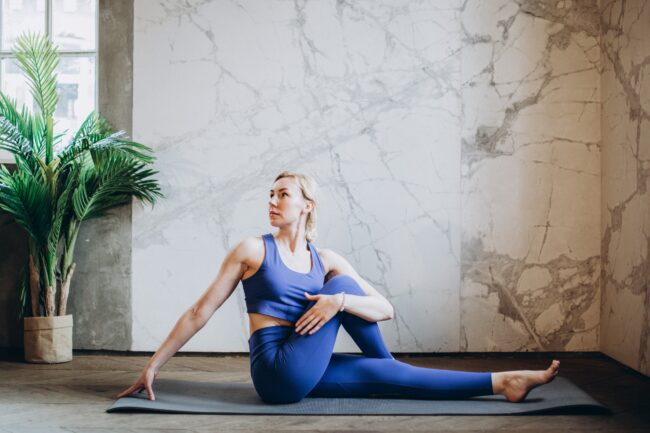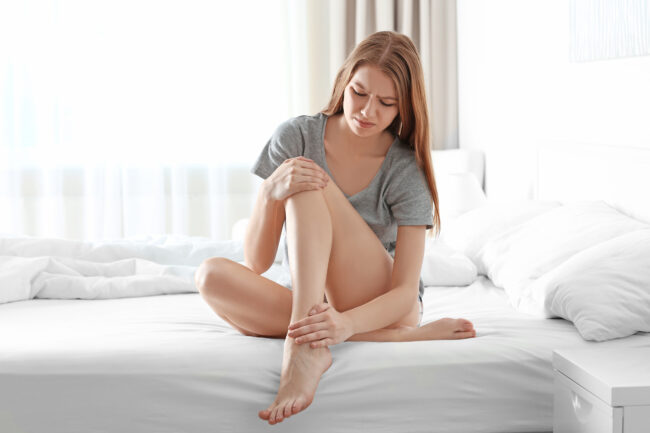Radiofrequency and Laser Ablation are generally considered the gold standard varicose vein treatments. However, as every case is different and every patient reacts differently to the various treatments, there is no clear-cut “best option”. What is clear-cut is that there will be the best option for you. So, if you’ve been asking yourself “Which varicose vein treatment is right for me?” Read on.
What are the different varicose vein treatment options?
As we mentioned, there are plenty of ways to treat varicose veins. These include:
- Endovenous Laser Ablation
- Radiofrequency Ablation
- Medical Superglue
- Sclerotherapy
- ClariVein
- Varicose Vein Surgey
Pros and Cons of Each Treatment Option
Endovenous Laser Ablation
We insert a catheter with a laser tip into your vein. Guided by ultrasound technology, we seal the varicose vein through heat energy. Your body will then reroute blood flow to nearby healthy veins and absorb the varicose one, making it “disappear” in a few weeks.
- Pros: State-of-the-art procedure with an extremely high success rate. Laser treatment also has a very low recurrence rate and is relatively pain-free.
- Cons: Some mild bruising and aches in the first week post-treatment and a tiny risk of numbness below the knee.
Radiofrequency Ablation
This treatment follows the same principle as laser ablation. But instead of heat energy, we seal the vein through a few radiofrequency bursts.
- Pros: Like EVLA, RFA is a gold-standard procedure with an extremely high success rate and a very low recurrence rate.
- Cons: Some mild bruising and aches in the first week post-treatment, though the risk is lower than in EVLA.
Medical Superglue
Here, we glue the problem vein shut. We Inject a medical-grade glue into the problem vein through a syringe or a catheter (depending on the vein’s size).
- Pros: Excellent for treating average-sized veins. It’s also quick and efficient.
- Cons: Rare risk of allergic skin reaction, and it is not suitable for very large veins.
Sclerotherapy
In this procedure, we inject a sclerosant into the varicose vein. Sclerotherapy works by agitating the vein’s lining, encouraging scar tissue to form and block blood flow. Don’t worry, though. The scarring will heal.
- Pros: Simple, well-known and convenient.
- Cons: It has a lower success rate when used alone, and varicose veins are more likely to recur in the following years. It’s also a poor treatment option for large veins.
ClariVein
Here, we insert the ClariVein catheter to inject sclerosant deeper into your problem vein.
- Pros: Allows for treating larger veins than traditional sclerotherapy
- Cons: Slight risk of an allergic reaction
Surgery
Unlike the other treatments, surgery involves manually removing the varicose vein.
- Pros: Can be used for very large varicose veins (vein stripping) and even very complex ones (phlebectomy)
- Cons: As you might imagine, the procedure is a more dangerous one. Additionally, you’ll need at least a couple of weeks to recover.
Home remedies for varicose veins

Woman in leggings doing a yoga pose on a yoga mat
When it comes to varicose veins, self-care is a remedy, not a treatment. As of yet, there are no proven non-medical ways to get rid of your varicose veins. Self-care is, however, a good way to manage symptoms while you wait for treatment, minimise the chances of your varicose vein reopening after treatment, and help prevent future varicose veins from forming.
Do all treatments cure varicose veins?

Woman sitting on her bed, holding her leg at the knee and ankle with a pained expression
Unfortunately, no. Every available medical varicose vein treatment is a treatment, not a cure. Treatment options like Endovenous Laser Ablation and Medical Superglue are highly effective at getting rid of varicose veins, both having a success rate of over 90%. But, there is still a small chance that the varicose vein will reopen. And there’s also a chance you’ll develop a varicose vein elsewhere.
That’s why we always recommend a combination of medical treatment and at-home care steps for the best results.
How do I know which varicose vein treatment is best for me?
The best treatment option for you depends on a few factors:
- Vein size: Laser, Surgery, and Radiofrequency ablation are best suited for large varicose veins; Superglue, ClariVein, and foam sclerotherapy for medium ones; and regular sclerotherapy for smaller ones.
- Allergens: As sclerotherapy and Medical Superglue treatments involve injecting a substance, you might get an allergic reaction. So before proceeding, we’ll need to do a test to see if you’re at risk.
- Speaking of risk, some treatments carry additional ones. For example, as Laser Ablation uses heat to seal the vein, there’s a minor chance it could damage surrounding nerves, leading to numbness, tingling, or pain. Laser Ablation and superglue might also create a blood clot, which, when stuck, can disrupt blood flow. And could be dangerous if dislodged. Surgery poses the most risk, with infection, nerve damage, blood loss, and more significant clotting.
Tips for selecting the best treatment provider
Choosing the right treatment isn’t just about which procedure to go for. Where you have it done and who does it should also be a consideration. To make sure you’ve got the best treatment for your veins, here are a few tips on what to look for.
- Reputation: Is the clinic well-reviewed? When previous patients have been happy and satisfied, it’s a great sign.
- Case Load: Do the doctors perform these procedures daily?
- Credentials: Are the doctors who perform the treatment well qualified?
- Environment: Is the clinic clean and comfortable? Friendly staff and a clean, comfortable clinic make a huge difference to the overall experience of the treatment.
- Second opinion: Are you unsure if what the clinic told you was reliable? Speaking to another clinic or doing more research at home to confirm the details you received is a helpful way of being sure.
Seek expert advice
In short, there is no ‘best treatment for varicose veins;’ there is only the best treatment for you. To determine what that is, you’ll need to seek expert advice. We offer in-depth consultations where we’ll go over your medical history, take an ultrasound scan of your legs to see how large the veins are and do an allergen test.
So if you’re ready to take the next step, call us at 13 VEINS (that’s 13 83467) or request a booking online.